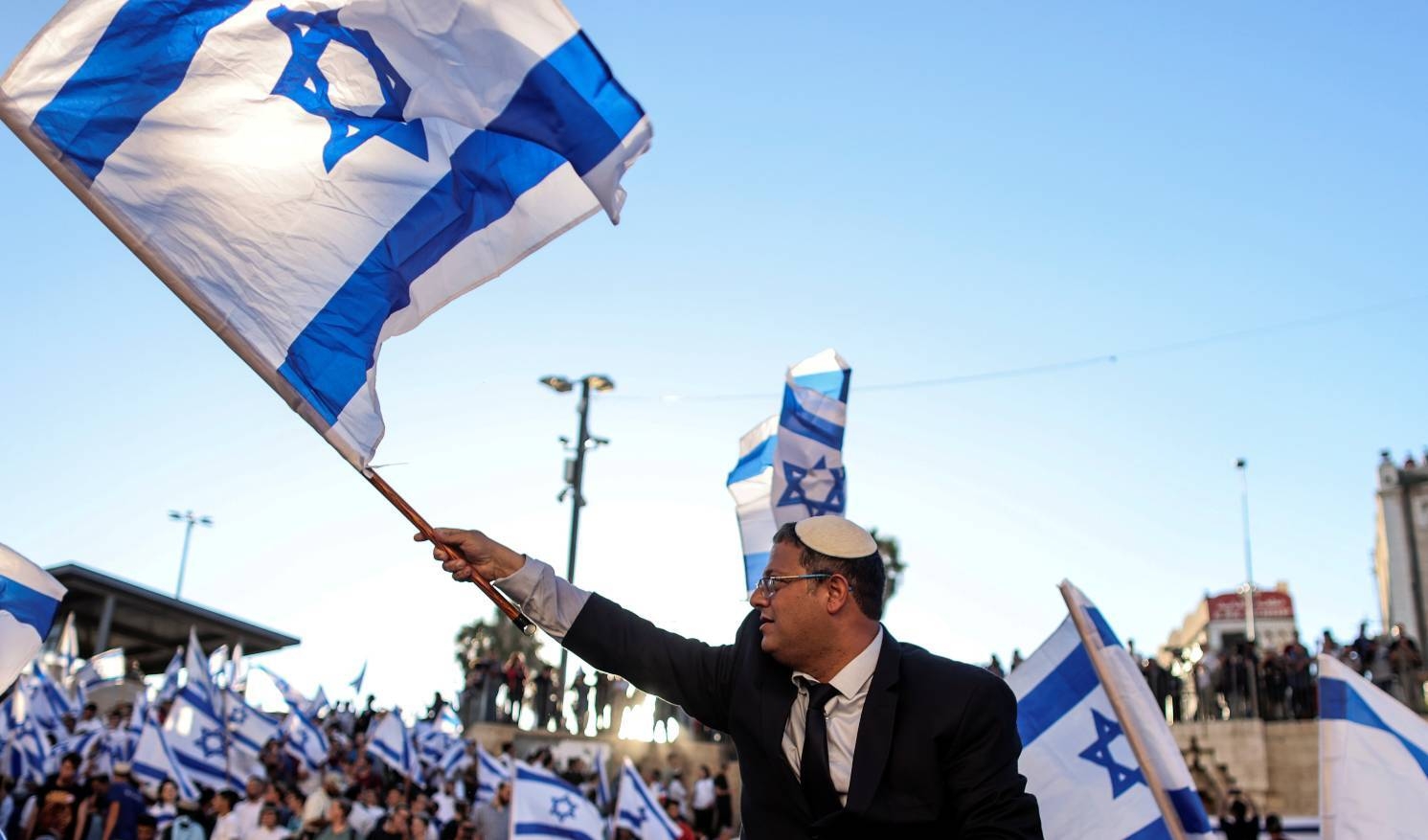Israel's Ben Gvir hails 'sacred' demolition of Palestinian homes in Negev

Israel's National Security Minister Itamar Ben Gvir and Housing Minister Yitzhak Goldknopf cheered on the demolition of houses in a Palestinian Bedouin village, as they oversaw the operation on Tuesday.
Ben Gvir praised Israeli authorities for their "sacred work" in demolishing the homes belonging to Palestinian citizens of Israel that the government says were built without permits in the Negev (Naqab) desert.
"Keep it up. It's important. I also know that this is Minister Goldknopf's position, to restore deterrence, restore sanity, and restore governance," the far-right minister said during the demolition
“Governance starts here, and they will understand that we govern here, that there are the landlords in this country,” he was quoted by Haaretz as saying to a village resident who shouted at him.
Ben Gvir later took to Twitter, recently renamed X, to write, "'Sorry Mohammad Magadli, this is a right-wing government.”
Stay informed with MEE's newsletters
Sign up to get the latest alerts, insights and analysis, starting with Turkey Unpacked
The comment refers to a TV interview he gave last week where Ben Gvir told news presenter Magadli, a Palestinian citizen of Israel, that his rights were “more important” than those of Palestinians.
“My right, and my wife’s and my children’s right to get around on the roads in Judea and Samaria, is more important than the right to movement for Arabs,” said Ben Gvir, using Jewish nationalist terms for the West Bank.
“Sorry Mohammad,” Ben Gvir went on to tell Magadli, “but that’s the reality. That’s the truth. My right to life comes before their right to movement.”
The US State Department denounced Ben Gvir’s “inflammatory” remarks, adding that it condemned "all racist rhetoric".
Ben Gvir's triumphalist attendance alongside Goldknopf to oversee Palestinian families being made homeless has sparked an outcry.
“This tweet demonstrates that the rule of law in Israel has become political,” noted one Twitter user.
In a joint statement with Ben Gvir, Goldknopf said he had instructed authorities "to act without compromises and concessions, to eradicate the phenomenon and to act decisively against the land thieves."
Ahmad Tibi, an MP and Palestinian citizen of Israel, called the actions of both ministers “embarrassing”.
'Judaisation' of the Negev
The Negev is home to some 51 Palestinian villages that the Israeli state does not recognise and regularly targets with demolition.
The region in southern Israel has been a focus of successive Israeli governments as they seek to dilute the Palestinian presence by building more Jewish settlements.
In July, an Israeli court gave Palestinian families in the Negev until March of next year to destroy their own homes and leave their village of Ras Jrabah to make way for the expansion of a nearby Israeli city.
The decision will affect 500 native people from Ras Jrabah.
Residents of the village, which predates the establishment of the state of Israel in 1948, told Middle East Eye that the news fell on them like a "thunderbolt" and was difficult to process.
The Ras Jrabah case began in 2019 when the Israel Land Authority filed 10 eviction lawsuits against 127 residents of the village and their families.
The government body argued that the presence of Ras Jrabah - which is unrecognised as an official village by the state - hindered the expansion of the nearby city of Dimona.
Dimona was built on land owned by the indigenous Palestinian tribe of al-Hawashleh, which also owns land in the adjacent Ras Jrabah.
While residents have said they will protest against the decision and fight it all the way in the courts, they have little faith in the current ultranationalist government, which has placed the acceleration of the "Judaisation" of the Naqab at the heart of its guiding policy.
Middle East Eye delivers independent and unrivalled coverage and analysis of the Middle East, North Africa and beyond. To learn more about republishing this content and the associated fees, please fill out this form. More about MEE can be found here.





